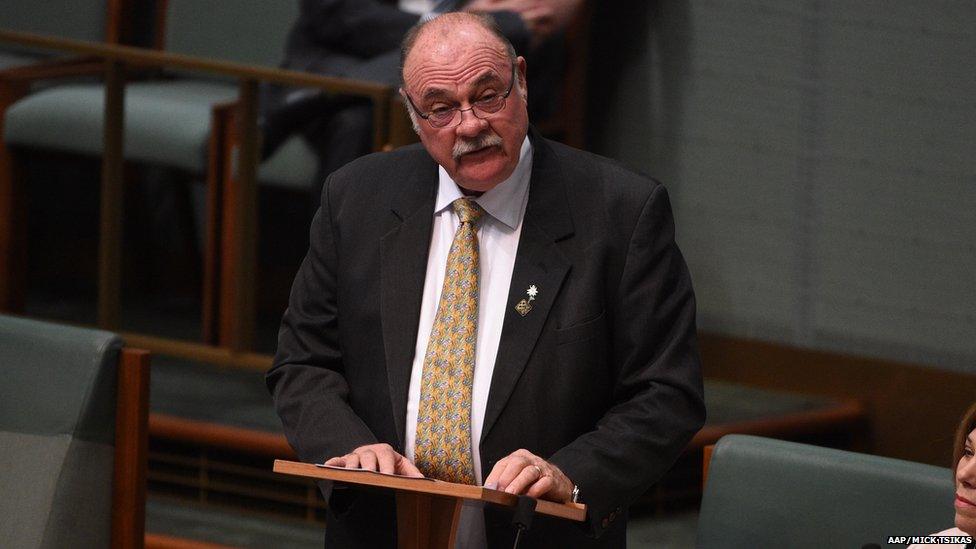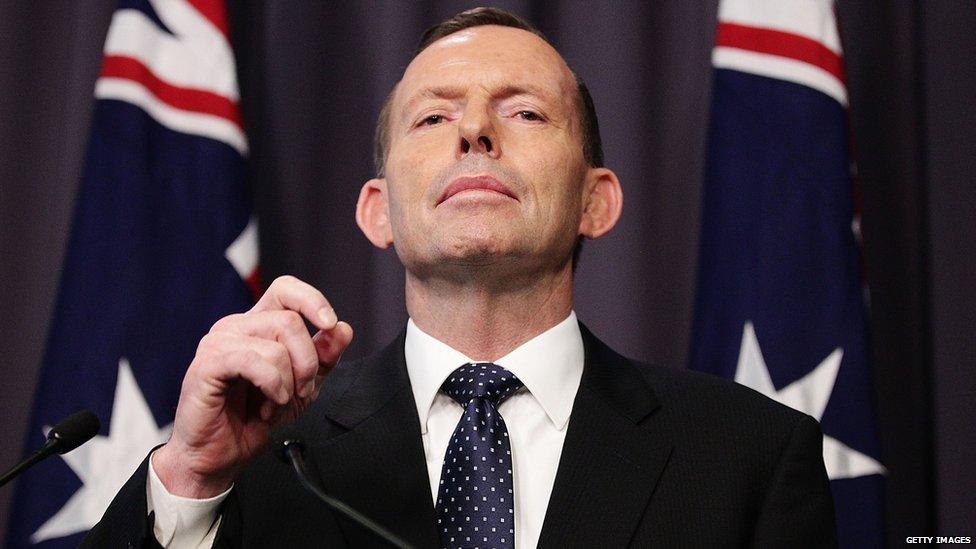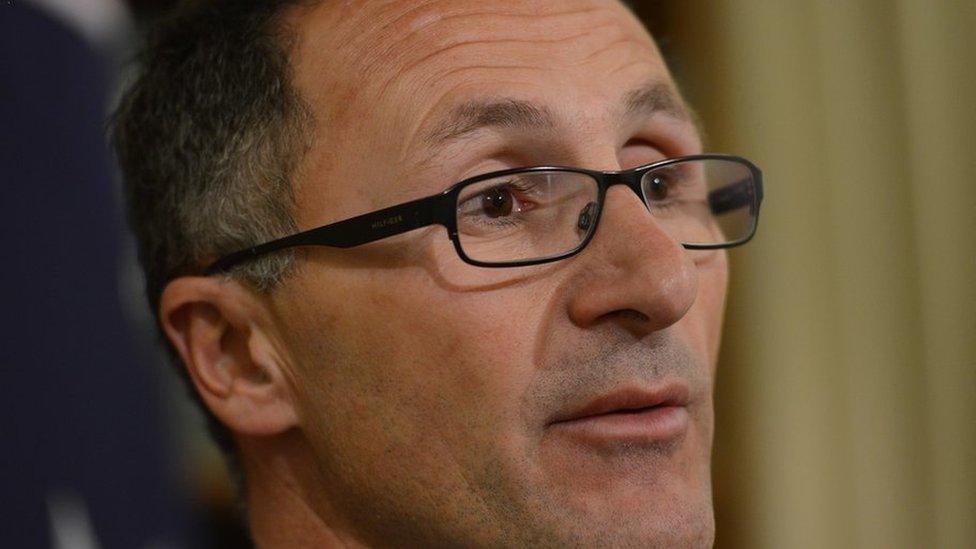Gay marriage bill introduced to Australian parliament
- Published

Mr Entsch says being gay is not a life style choice
A controversial bill to legalise same-sex marriage has been introduced to the Australian parliament.
The private member's bill comes amid heated debate among government MPs about whether to change the law or put the matter to a plebiscite.
The government's official position is that marriage should only be between a man and a woman.
Prime Minister Tony Abbott has denied government MPs a free vote on any bill legalising same-sex marriage.
The bill, external allows couples, regardless of "sex, sexual orientation, gender identity or intersex status" to marry.
Australia's Marriage Act limits marriage to a union of a man and a woman.
The bill was introduced by government backbencher Warren Entsch, one of several government backbenchers who plan to defy Mr Abbott by crossing the floor of the parliament to vote in favour of marriage equality.
The ban on a free vote for government MPs means it is likely to fail.
Plebiscite
Mr Abbott has said the matter should be "put to the people" in a non-binding plebiscite after the next general election, due in 2016.
Meanwhile, cross bench senators have backed an Australian Greens bill calling for a gay marriage plebiscite before the election.

Getting married in Australia
Australia's Marriage Act, external specifies marriage as a union between a man and a woman
Opinion polls taken over the past year show between 60% and 72% of Australians support gay marriage
Officially, the ruling Liberal-National coalition does not support gay marriage
The Opposition Labor party endorses gay marriage, but allows its MPs a conscience vote on legislation

In an impassioned speech, Mr Entsch spoke of how his bill, which has cross-party support, was designed to promote a more inclusive Australia.
"Being gay is not a lifestyle choice," the Queensland MP told the parliament.
"This bill does not create different classes of marriage," he said.
"A divided nation is what we will be if we continue to allow discrimination in relation to marriage on the basis of a person's sexuality."
- Published11 August 2015

- Published12 August 2015

- Published13 August 2015
